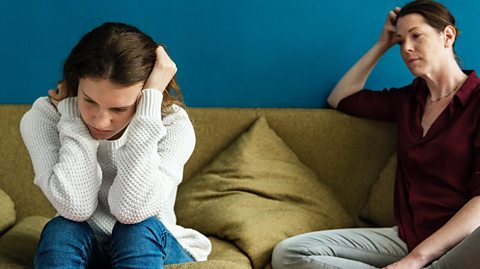By Dr Michael Mosley, science journalist.
Old or young, there are so many reasons why you should ensure that you and your family are getting enough good quality sleep each night. As I discovered when I made the documentary How to Sleep Well, sleep is essential for spring cleaning our brains, putting our memories into long-term storage and boosting creativity. If youâre not getting enough sleep then this can make you irritable, distracted and encourage you to eat lots of unhealthy foods.
For the programme we carried out a survey of the nationâs sleep with the University of Oxford. Almost half of respondents reported having poor quality sleep. And the average amount of sleep was six hours 48 minutes, which is below the seven to nine hours that experts recommend. Women slept on average worse than men.
Poor sleep can impact our physical and mental health, including our weight. In the survey 60% of poor sleepers had a BMI that was in the obese or overweight category. Kings College London report that we consume on average 385 more calories per day if we are sleep deprived.
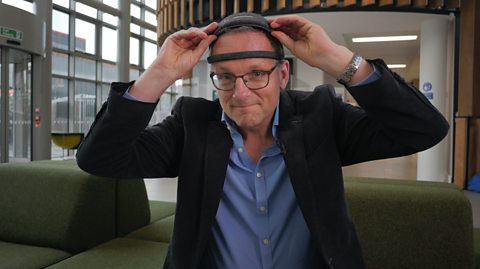
So, how do you know if you and your kids are getting enough? According to the National Sleep Foundation, this is how much sleep you should be getting at different stages of your life:
- Children, from preschool up to the age of 12, should be getting 10â11 hours of sleep each night.
- Teenagers need around eight to nine hours.
- Most adults need seven to nine hours.
Yet many younger children and most teenagers donât come close to hitting these targets, with fewer than half of British kids getting the required hours.
How do you know if your child is getting enough? If they sleep through the alarm clock, have to be dragged out of bed in the morning and regularly complain about feeling tired, then the answer is they are probably not getting enough. So, what can you do to help? Here are five tips which I hope you will find useful:

1. Clear distractions out of their bedroom
That means no television, no laptops, no phones.
Itâs very easy for children to get into the habit of staying up late at night, going through social media, or watching a compelling new TV series on their phones. Depending on how compliant they are, you may need to remove electronic gadgets like phones and laptops before bedtime. In addition, it would be wise to have a rule where they have to switch off or hand over their devices an hour or so before bedtime, as winding down and getting ready for sleep can take a while.
I appreciate how difficult controlling their use of social media can be, particularly when it comes to teenagers, but social media is designed to be addictive. The younger they are when you institute these rules, the easier they will be to implement.
This Parents' Toolkit article has further tips on how to manage your childâs online world without clashing
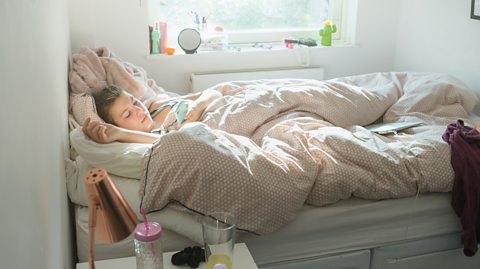
2. Establish a sleep routine
Establish a routine which does not involve electronic devices. With younger children this might include a warm bath (which can help trigger sleepiness) and a not-too-exciting bedtime story. With older children you could try to hang around and have a quiet chat about what has happened during the day, and anything that may be on their minds.
3. Set up a regular sleep schedule
As part of the sleep routine you need to set a regular sleep schedule. Itâs really important that you get your kids into a routine where they go to bed and get up at the same time each day, and they donât have long lie-ins at the weekend. If they're allowed to sleep in for an extra hour or more at the weekend then this can lead to what is known as âsocial jet lagâ.
Sleeping in on a Sunday morning means they will feel less sleepy come Sunday evening, so they will stay awake and be hard to rouse on Monday morning. Agree a routine with them, but one which means they are getting the eight to 11 hours they need each night, depending on their age.
4. Try to ensure theyâre eating a healthy diet
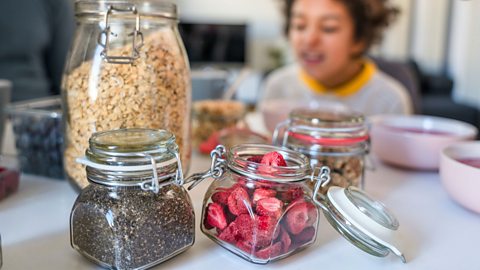
That means a diet which contains plenty of fibre, in the form of whole grains, fruit and veg, and cutting back on sugar. There have been numerous studies which have shown that such a diet is associated with deeper sleep and less anxiety. That is, at least in part, because a healthy diet boosts levels of the microbiome â the âgoodâ bacteria that live in the gut â and these in turn produce âfeel-goodâ hormones like dopamine, which help improve mood.
Since one of the reasons why teenagers, in particular, stay awake at night is because they are ruminating and fretting, anything that improves mood is likely to be good for sleep.
5. Encourage them to be active outdoors
Spending more time outdoors, particularly in the morning, is really helpful for sleep because lots of bright, early morning light will help reset their internal clock, which in turn ensures they're feeling sleepy at the end of the day.
Here are seven ways to get your kids outdoors from the Parents' Toolkit.
How to Sleep Well with Michael Mosley was on ±«Óătv Two at 9pm on 31 March 2022.
The programme uses the results of the UK Sleep Census, a study by the University of Oxford and the ±«Óătv, that aims to explore what factors may be associated with better or poorer sleep, and how sleep impacts the way we think and feel. The UK Sleep Census was active until September 2022. Michael Mosley explains more here.
Michael Mosley also investigates sleep with Professor Russell Foster - Director of the Sleep and Circadian Neuroscience Institute at the University of Oxford on the ±«Óătv Sounds and Radio 4 programme - Just One Thing.

If you or your child are struggling with your sleep, the has lots of useful tips and information. For more detailed research on sleep, you can also look at these articles on .
If the problem persists chat to your GP to see what is available. They may be able to refer you for free for .
If you suspect you or your child suffer from sleep complications, like , make an appointment to discuss it with your GP.

Where can I find more support for home education and parenting?
The ±«Óătv Bitesize home education page is designed to support you and your childâs learning at home with free resources for early years and foundation stage (EYFS), primary and secondary-age students.
Bitesize Parentsâ Toolkit is the go-to place for the whole parenting community to find stories, expert advice and fun activities.
If your child has special educational needs and / or disabilities, be sure to check out the Parentsâ Toolkit SEND collection.
Parents' Toolkit
Fun activities, real-life stories, wellbeing support and loads of helpful advice - we're here for you and your child.

Canât sleep, wonât sleep? Five ways to get your childâs sleep back on track
Advice and tips on helping your kids into healthier sleep patterns
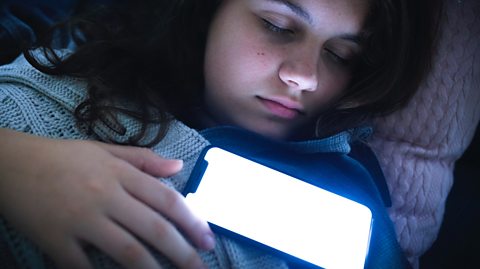
Four steps to chatting with your child about their mental health
Starting a conversation about mental health isn't easy. Especially if your child is reticent to open up. This advice from the charity Young Minds may help.
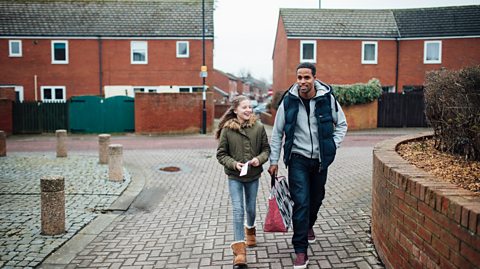
Tips for a calmer bedtime routine
Our colleagues at ±«Óătv Tiny Happy People have great advice for parents around sleep for babies and pre-school children.

Five tips for helping your kids to eat healthily all year round
Healthy eating hacks for parents from dietitian Priya Tew.

Mental health first aid kit for parents: Who to ask and what to do
Worried that your child needs help with their mental health? Here's how you can access professional help and support your child while you wait.
